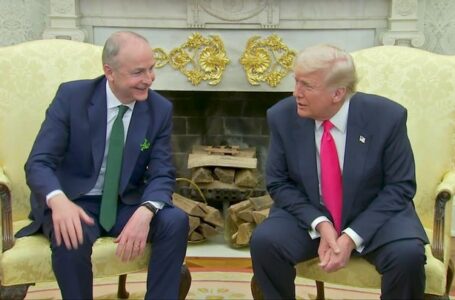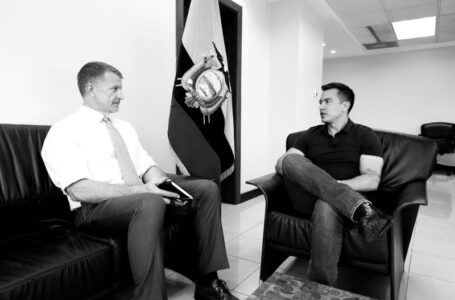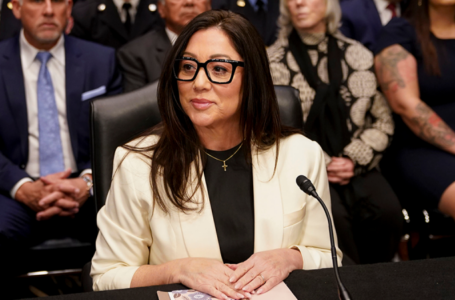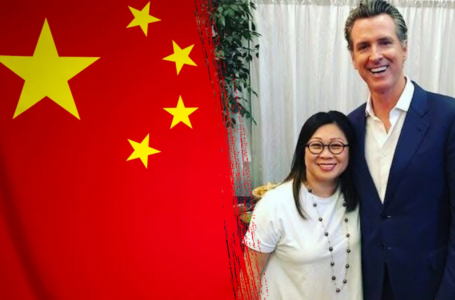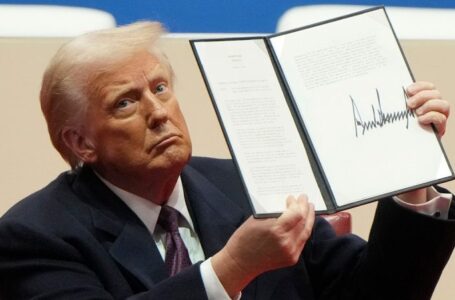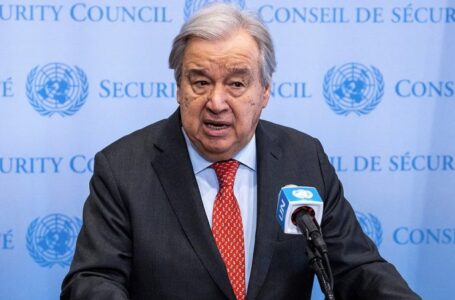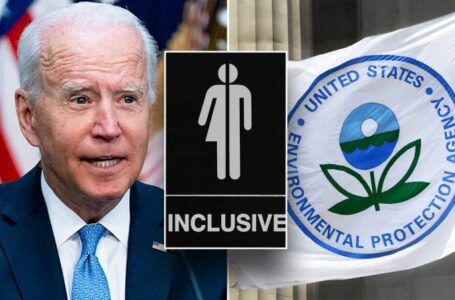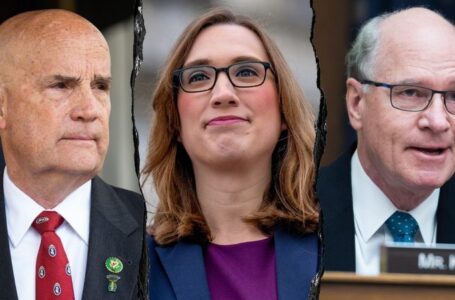President Trump slams Rosie O’Donnell after she flees US: ‘You’re better off not knowing’ her
Special counsel asks Supreme Court to let Trump’s D.C. trial proceed
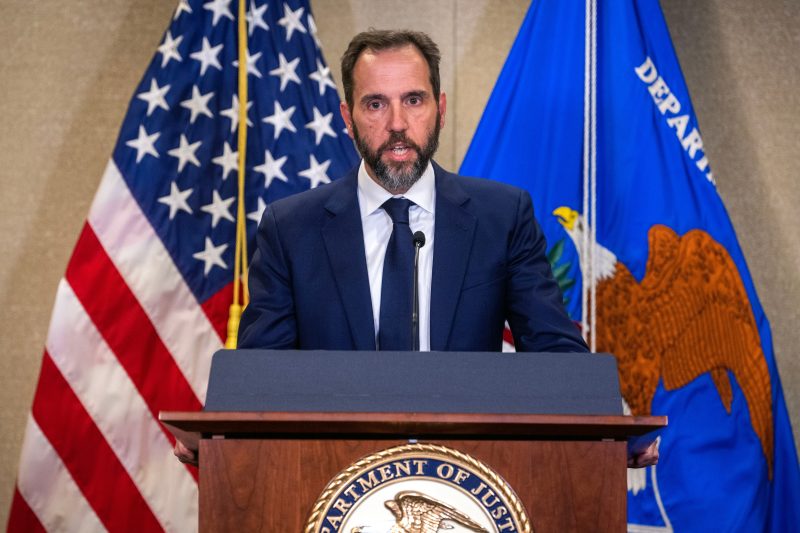

Special counsel Jack Smith asked the Supreme Court to clear the way for the prosecution of Donald Trump for his efforts to remain in office after losing the 2020 election, pushing back against the former president’s claim that he should be shielded from standing trial as he again seeks the White House.
In a filing Wednesday evening, Smith’s office urged the justices to let stand a unanimous ruling from the influential U.S. Court of Appeals for the D.C. Circuit that rejected Trump’s sweeping claims of immunity from prosecution for actions he took as president. The Supreme Court’s response will have a significant impact on whether and when Trump goes on trial in Washington, where the presiding judge has already postponed a planned March 4 start date.
Federal prosecutors told the justices that Trump’s “alleged criminal scheme to overturn an election and thwart the peaceful transfer of power to his successor should be the last place to recognize a novel form of absolute immunity from federal criminal law.”
Smith’s office requested an expedited schedule with oral argument in March if the court decides to review the matter, rather than leaving the appeals court ruling in place. Further delaying the trial, the filing said, threatens the public interest in a “speedy and fair verdict,” particularly in a case of unique national importance.
Without mentioning the 2024 presidential election, in which Trump is the leading Republican candidate, prosecutors pushed back on Trump’s claim that the rights of American voters require a delay in the criminal proceedings.
“To the contrary, the charges here involve applicant’s alleged efforts to disenfranchise tens of millions of voters,” the office said.
As they weigh the competing requests, the justices must decide whether to wade into another unprecedented, high-stakes legal dispute involving Trump as he closes in on his party’s presidential nomination. Last week, justices from across the ideological spectrum seemed prepared to reject a challenge from Colorado voters to Trump’s eligibility to hold office again because of his conduct around the Jan. 6, 2021 attack on the U.S. Capitol.
The case at issue in the special counsel’s filing is Trump’s four-count indictment for allegedly conspiring to overturn the results of the 2020 contest and obstructing the certification of the election.
U.S. District Judge Tanya S. Chutkan, who is presiding over the trial, rejected Trump’s claim that he is immune from prosecution for actions within the “outer perimeter” of his official duties, unless first impeached and convicted by Congress. But she agreed to freeze pre-trial proceedings while Trump appealed.
In December, the Supreme Court refused to go along with a request from Smith to short-circuit the usual appeals process and quickly consider Trump’s immunity claims. Smith said the request to leapfrog the D.C. Circuit was necessary because it is “an extraordinary case’ that “only this court can definitively resolve.”
The court did not provide an explanation for turning down Smith’s initial ask. There were no dissents and no indication that Justice Clarence Thomas had recused, even as some congressional Democrats called on him to do so because of his wife’s involvement in challenging the outcome of the 2020 election.
Smith has also charged Trump in Florida with allegedly mishandling classified documents and obstructing government efforts to retrieve them; that trial is scheduled for May 20 but could be pushed back. In addition, Trump faces state charges in New York for alleged hush money paid during the 2016 election, with a trial scheduled for March 25, and was indicted in Georgia for allegedly participating in a massive conspiracy to undo the 2020 election results in that state.
Trump has denied guilt in all the cases and is seeking to delay the trials until after the November election.
The former president’s lawyers urged the Supreme Court on Monday to keep the D.C. trial on hold. They asked the justices to give the former president time to first seek review by a full complement of appeals court judges, and argued that the special counsel’s office should not be permitted to disrupt the presidential contest.
“Conducting a months-long criminal trial of President Trump at the height of election season will radically disrupt President Trump’s ability to campaign against President Biden—which appears to be the whole point of the Special Counsel’s persistent demands for expedition,” said the filing from his legal team, led by attorney D. John Sauer.
But two lower courts have already rejected Trump’s sweeping claim of immunity. In its unanimous ruling last week, a panel of the D.C. Circuit said of Trump that ‘any executive immunity that may have protected him while he served as president no longer protects him against this prosecution.”
“We cannot accept former President Trump’s claim that a president has unbounded authority to commit crimes that would neutralize the most fundamental check on executive power — the recognition and implementation of election results,” wrote the judges, two of whom were nominated by Biden, a Democrat, and one by Republican President George H.W. Bush.
The Supreme Court said Tuesday that Smith had one week to reply to Trump’s filing; in a sign of the urgency with which prosecutors are moving, the office responded the next day.
Federal prosecutors noted that the Supreme Court has ruled that presidents are shielded from civil lawsuits for their official actions and that the Justice Department has long held the view that sitting presidents cannot be indicted while in office.
In the Supreme Court’s landmark United States v. Nixon decision, however, President Richard M. Nixon had to turn over White House tapes and other documents to a federal district court. The unanimous ruling said a president does not have absolute immunity from subpoenas or other court actions.
But — in part because Nixon was pardoned once out of office by his successor, Gerald Ford — the Supreme Court has never been asked to decide whether a former president is immune from criminal prosecution.
Smith’s office took issue in its filing Wednesday with Trump’s assertion that a former president cannot be prosecuted unless he is first impeached and convicted.
“The separation of powers involves checks and balances — not a blank check for crimes a President might commit through official acts so long as he resigns from office, avoids impeachment and conviction, or conceals his criminal conduct until after the expiration of his term,” the special prosecutor’s office told the justices.
The votes of five of nine justices are required to keep the D.C. Circuit ruling on hold and the trial proceedings paused. It takes four justices to accept a case for review.

